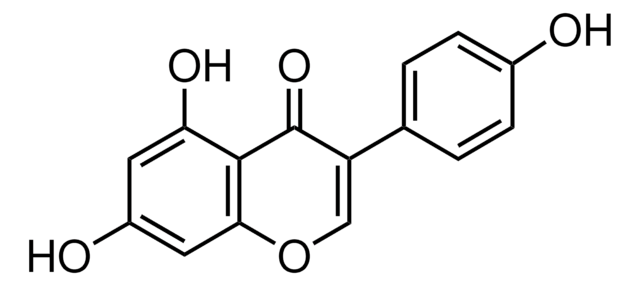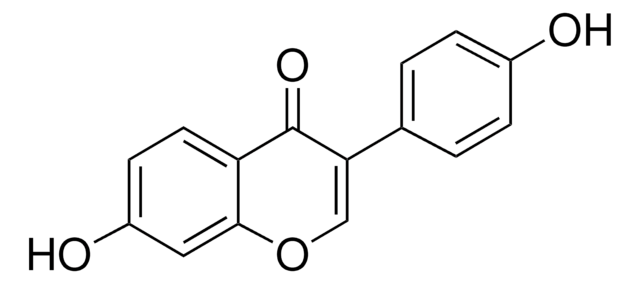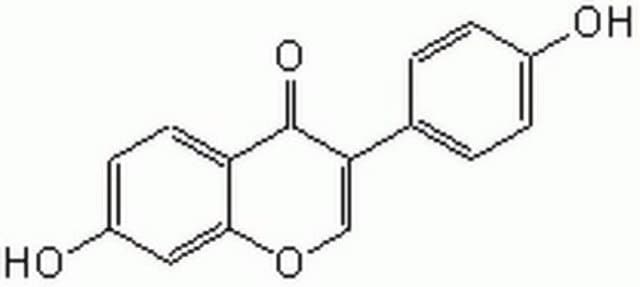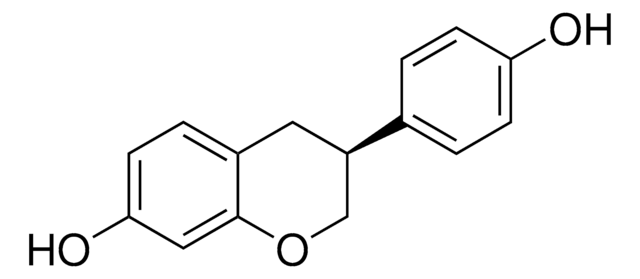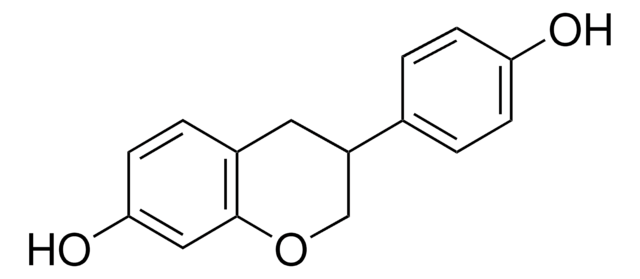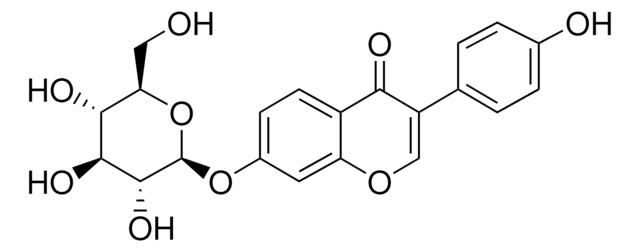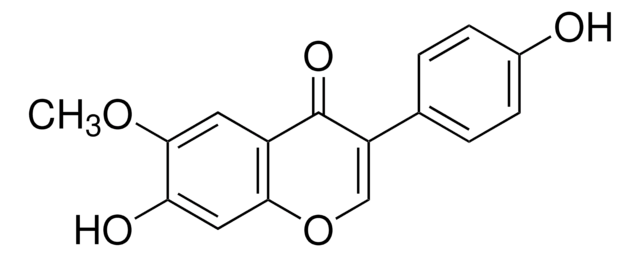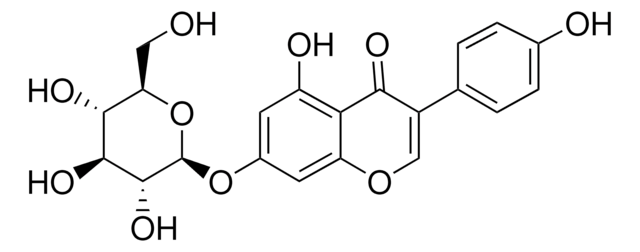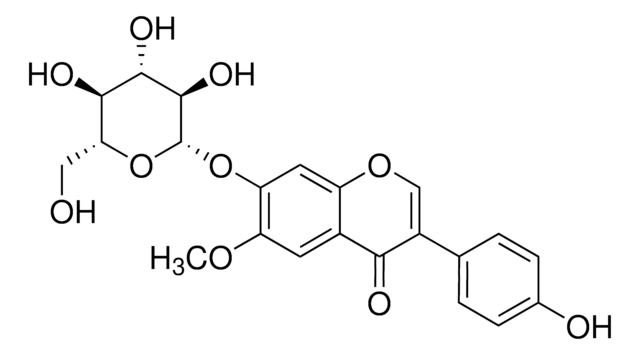D7802
Daidzein
≥98% (TLC), powder, carbonic anhydrase (CA) inhibitor
Synonym(s):
4′,7-Dihydroxyisoflavone, 7-Hydroxy-3-(4-hydroxyphenyl)-4H-1-benzopyran-4-one, 7-Hydroxy-3-(4-hydroxyphenyl)chromone, Isoaurostatin
About This Item
Recommended Products
Product Name
Daidzein, ≥98%, synthetic
biological source
synthetic
Quality Level
Assay
≥98%
form
powder
mp
>290 °C
solubility
DMSO: 10 mg/mL
storage temp.
−20°C
SMILES string
Oc1ccc(cc1)C2=COc3cc(O)ccc3C2=O
InChI
1S/C15H10O4/c16-10-3-1-9(2-4-10)13-8-19-14-7-11(17)5-6-12(14)15(13)18/h1-8,16-17H
InChI key
ZQSIJRDFPHDXIC-UHFFFAOYSA-N
Gene Information
human ... ESR1(2099) , ESR2(2100) , UGT1A4(54657)
mouse ... Aldh1a2(19378) , Hexa(15211) , Maoa(17161)
rat ... Aldh1a2(116676)
Looking for similar products? Visit Product Comparison Guide
General description
Application
- as a control to evaluate fertility in rats
- to study its effects on ovarian cancer
- to simulate in vitro antioxidant activity
Biochem/physiol Actions
Packaging
Signal Word
Warning
Hazard Statements
Precautionary Statements
Hazard Classifications
Eye Irrit. 2 - Skin Irrit. 2
Storage Class Code
11 - Combustible Solids
WGK
WGK 3
Flash Point(F)
Not applicable
Flash Point(C)
Not applicable
Personal Protective Equipment
Regulatory Listings
Regulatory Listings are mainly provided for chemical products. Only limited information can be provided here for non-chemical products. No entry means none of the components are listed. It is the user’s obligation to ensure the safe and legal use of the product.
JAN Code
D7802-25MG:
D7802-100MG-PW:
D7802-100MG:
D7802-VAR:
D7802-BULK:
D7802-25MG-PW:
Choose from one of the most recent versions:
Certificates of Analysis (COA)
Don't see the Right Version?
If you require a particular version, you can look up a specific certificate by the Lot or Batch number.
Already Own This Product?
Find documentation for the products that you have recently purchased in the Document Library.
Customers Also Viewed
Articles
Serotonin is stored in cells and metabolized by MAO, influencing CNS, GI, and platelet functions.
Antioxidants protect biological systems from oxidative damage produced by oxygen-containing free radicals and from redoxactive transition metal ions such as iron, copper, and cadmium.
Our team of scientists has experience in all areas of research including Life Science, Material Science, Chemical Synthesis, Chromatography, Analytical and many others.
Contact Technical Service